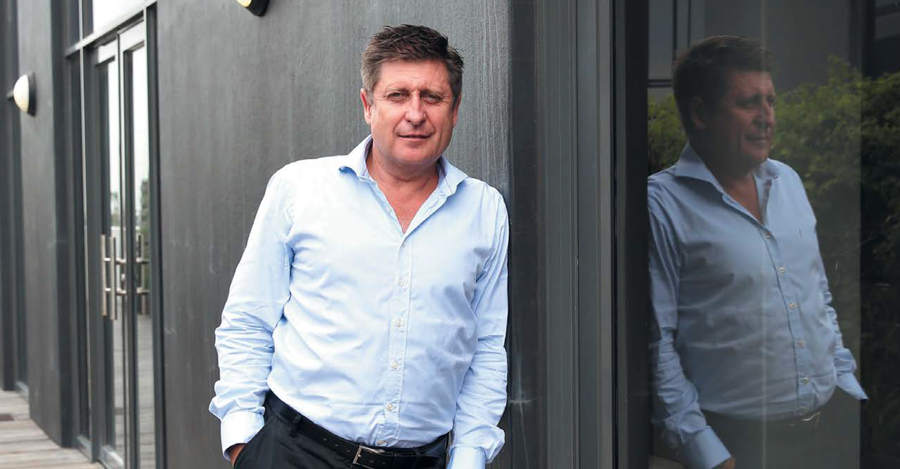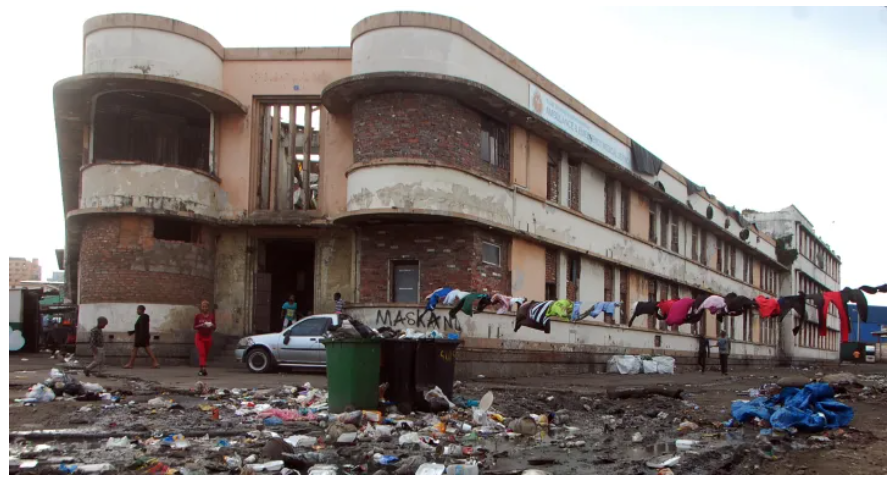
The Other Madiba
May 11, 2015
Mango unchained
January 16, 2017He’s built a R23-billion company but hung on to his Durban roots.
M
iles Dally is articulate, engaging, knowledgeable and passionate. He leans forward in the chair of his office in Westville, speaking as earnestly as an entrepreneur who runs his own business. “I just love what I do.”
And perhaps there’s every reason he should. Dally has quietly built up a behemoth, RCL Foods, which employs thousands of people and generates annual revenue of R23-billion.
It started in 2003 when he was appointed CEO of Rainbow Chickens. In seven years he consolidated the company’s growth then started engineering its transformation into a fast-moving consumer goods giant.
Three years later he had completed R13-billion worth of revenue in acquisitions, buying Foodcorp, the biggest supplier to Woolworths, and sugar company TSB.
He pulled them together into a stable with Rainbow and logistics firm Vector, and now he’s involved in the “logical clustering” of an enterprise that involves hundreds of farms, production lines, supply chains, and a huge array of products including mayonnaise, peanut butter, chicken pieces, pies and dog food.
“Consumers have changed. They’re interested in the companies behind the brands,” he says. “You have to be good corporate citizens, and while brands must trade on their own, consumers must come to know that the company behind those brands behaves with uncompromising integrity.”
It can come at the expense of short-term profits, but it pays off in the long run. Since 2007 the company has refused to inject more than 30% brine into its chickens. The decision cost it R150-million last year alone. “But we believe customers will say: ‘This one shrinks less in the pot.’
“We had a problem with dog food so we recalled the whole line. The word gets out, from staff, clients and customers, that you run an ethical business, and that builds trust.”
Dally previously headed Robertsons. He became managing director at the age of 37 and oversaw its sale to Unilever when he left.
He says the aim of RCL Foods is to provide more food to more of Africa’s one billion people more often. To do this, scale is required, and building the company out of Durban has been relatively easy, he says.
Rainbow had a good reputation, but he knew it could be more than just a chicken business. He was exposed to the deal flow through the doors of Remgro, which owns 70% of RCL, and had the company’s backing. He also attracted talented people. “I hire people who are brighter than me. They don’t show me up, they make me look good.
“Growth enables opportunity, so you have to grow. I’m restlessly critical, but not anxious. I can’t micro-manage a
R23-billion business with 20 000 employees. Good people who have authentic, trusting relationships easily disclose problems and deal with them.
“Without trust you are finished. You have to create a fun environment. Make no mistake, there are rocky roads and frank conversations, but it’s about managing the exceptions.”
Dally says the organisational ethos he’s tried to shape does not hinge on one person. He says good people are energised by new opportunities and the prospects for improvement; they get on with it and don’t wait for edicts from headquarters.
“The people here spark each other. They fire one another up. I believe in them and we believe in what we’re doing.”
Dally says autocracy creates a minefield. Staff can’t take decisions for fear of displeasing the leader and their conflict is unhealthy because they play the man and not the ball. “This business isn’t about me. When I go, I hope there won’t be a ripple. I want to create an environment for growth that encourages creativity for good people who are passionate about what they do.
“It is wonderful to do business in Durban. I have been lucky to do that my whole working life. I work with great people and have been backed by Remgro, and they value ethics and are long-term investors.”
[sharethis-inline-buttons]
And perhaps there’s every reason he should. Dally has quietly built up a behemoth, RCL Foods, which employs thousands of people and generates annual revenue of R23-billion.
It started in 2003 when he was appointed CEO of Rainbow Chickens. In seven years he consolidated the company’s growth then started engineering its transformation into a fast-moving consumer goods giant.
Three years later he had completed R13-billion worth of revenue in acquisitions, buying Foodcorp, the biggest supplier to Woolworths, and sugar company TSB.
He pulled them together into a stable with Rainbow and logistics firm Vector, and now he’s involved in the “logical clustering” of an enterprise that involves hundreds of farms, production lines, supply chains, and a huge array of products including mayonnaise, peanut butter, chicken pieces, pies and dog food.
“Consumers have changed. They’re interested in the companies behind the brands,” he says. “You have to be good corporate citizens, and while brands must trade on their own, consumers must come to know that the company behind those brands behaves with uncompromising integrity.”
It can come at the expense of short-term profits, but it pays off in the long run. Since 2007 the company has refused to inject more than 30% brine into its chickens. The decision cost it R150-million last year alone. “But we believe customers will say: ‘This one shrinks less in the pot.’
“We had a problem with dog food so we recalled the whole line. The word gets out, from staff, clients and customers, that you run an ethical business, and that builds trust.”
Dally previously headed Robertsons. He became managing director at the age of 37 and oversaw its sale to Unilever when he left.
He says the aim of RCL Foods is to provide more food to more of Africa’s one billion people more often. To do this, scale is required, and building the company out of Durban has been relatively easy, he says.
Rainbow had a good reputation, but he knew it could be more than just a chicken business. He was exposed to the deal flow through the doors of Remgro, which owns 70% of RCL, and had the company’s backing. He also attracted talented people. “I hire people who are brighter than me. They don’t show me up, they make me look good.
“Growth enables opportunity, so you have to grow. I’m restlessly critical, but not anxious. I can’t micro-manage a
R23-billion business with 20 000 employees. Good people who have authentic, trusting relationships easily disclose problems and deal with them.
“Without trust you are finished. You have to create a fun environment. Make no mistake, there are rocky roads and frank conversations, but it’s about managing the exceptions.”
Dally says the organisational ethos he’s tried to shape does not hinge on one person. He says good people are energised by new opportunities and the prospects for improvement; they get on with it and don’t wait for edicts from headquarters.
“The people here spark each other. They fire one another up. I believe in them and we believe in what we’re doing.”
Dally says autocracy creates a minefield. Staff can’t take decisions for fear of displeasing the leader and their conflict is unhealthy because they play the man and not the ball. “This business isn’t about me. When I go, I hope there won’t be a ripple. I want to create an environment for growth that encourages creativity for good people who are passionate about what they do.
“It is wonderful to do business in Durban. I have been lucky to do that my whole working life. I work with great people and have been backed by Remgro, and they value ethics and are long-term investors.”
[sharethis-inline-buttons]


